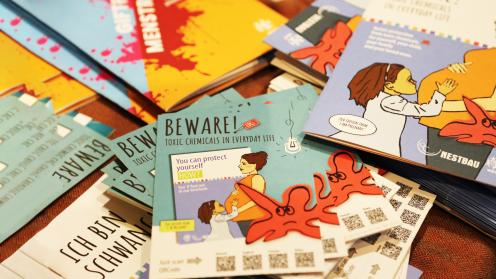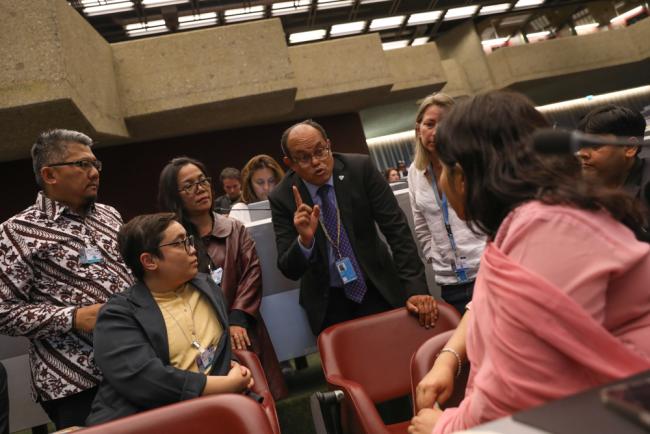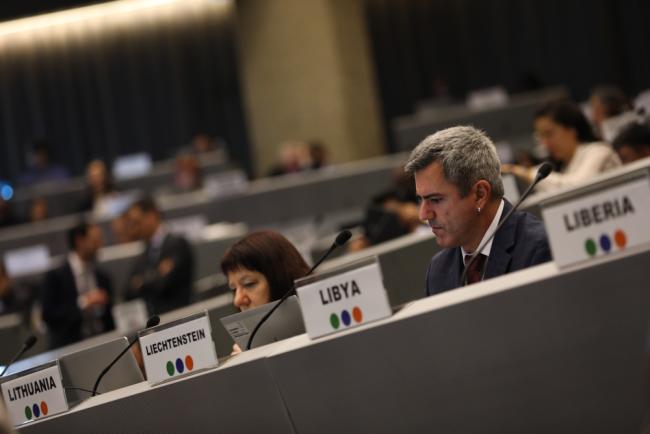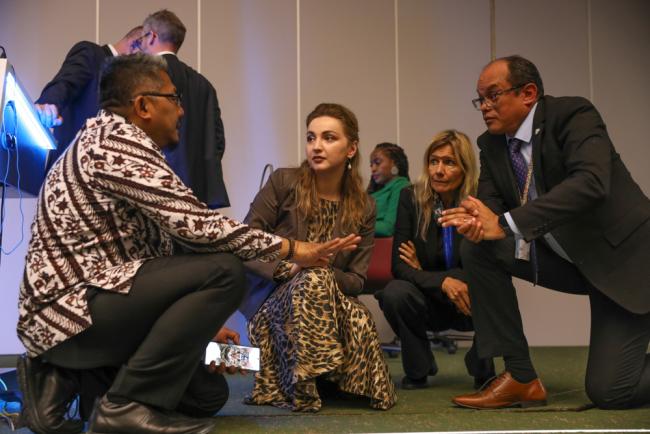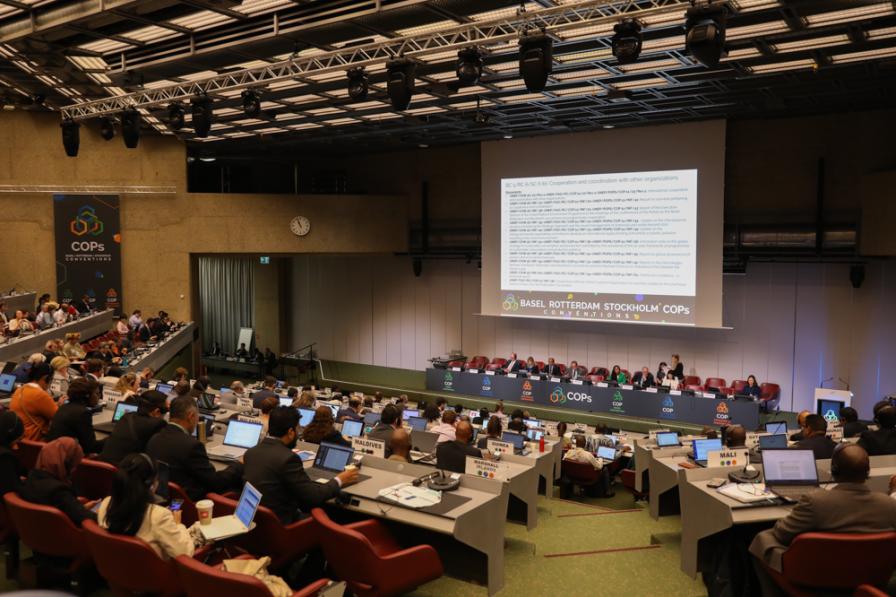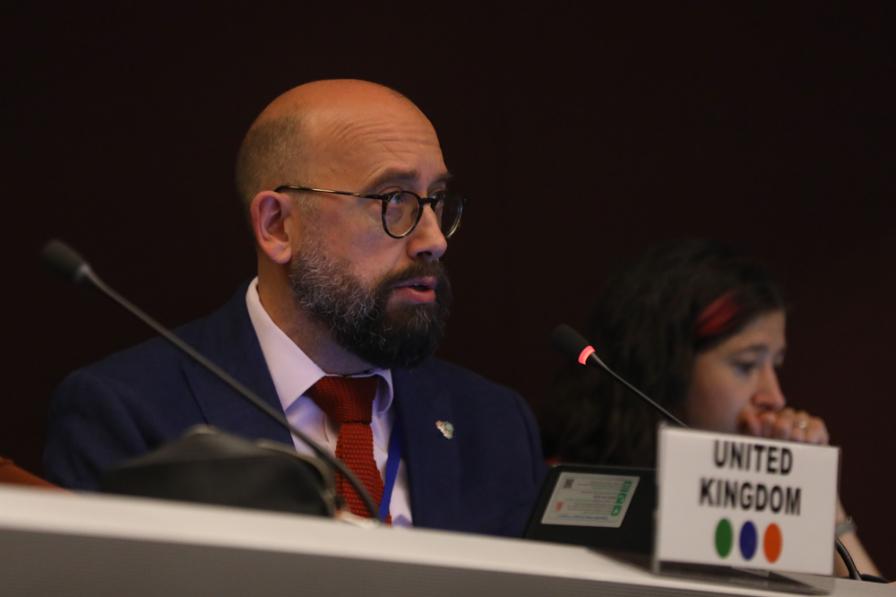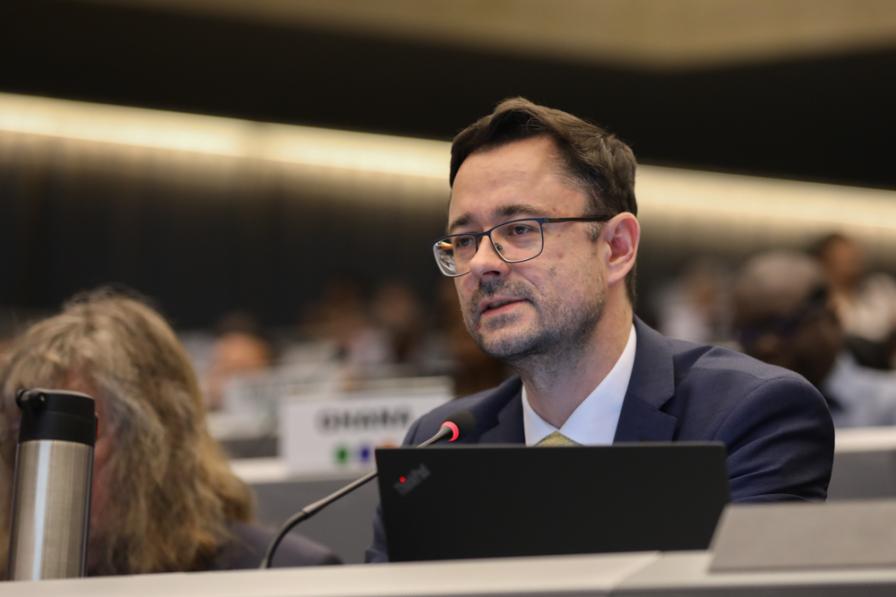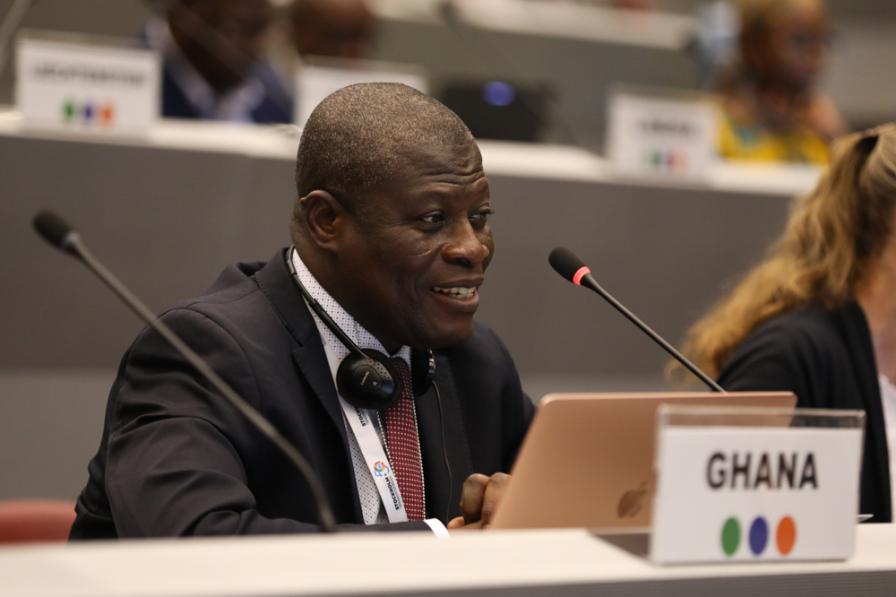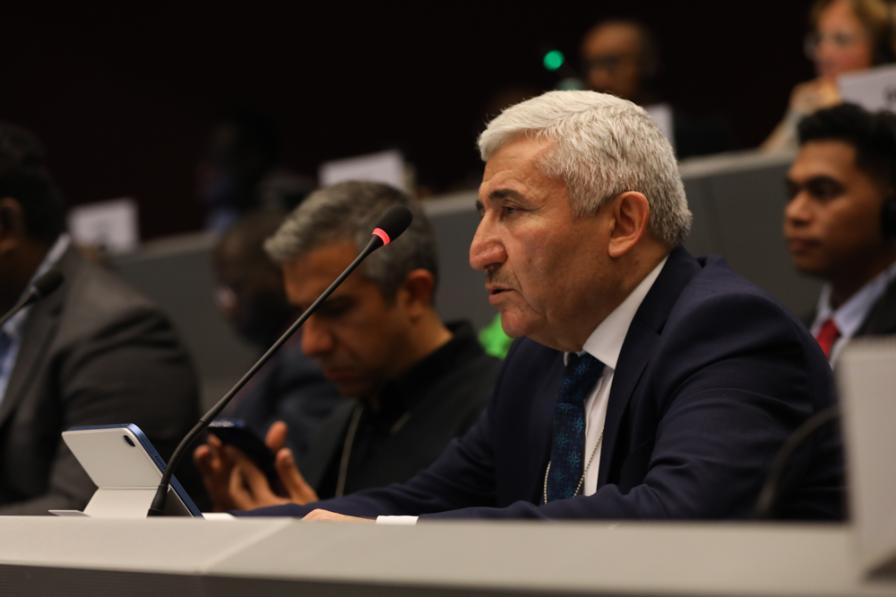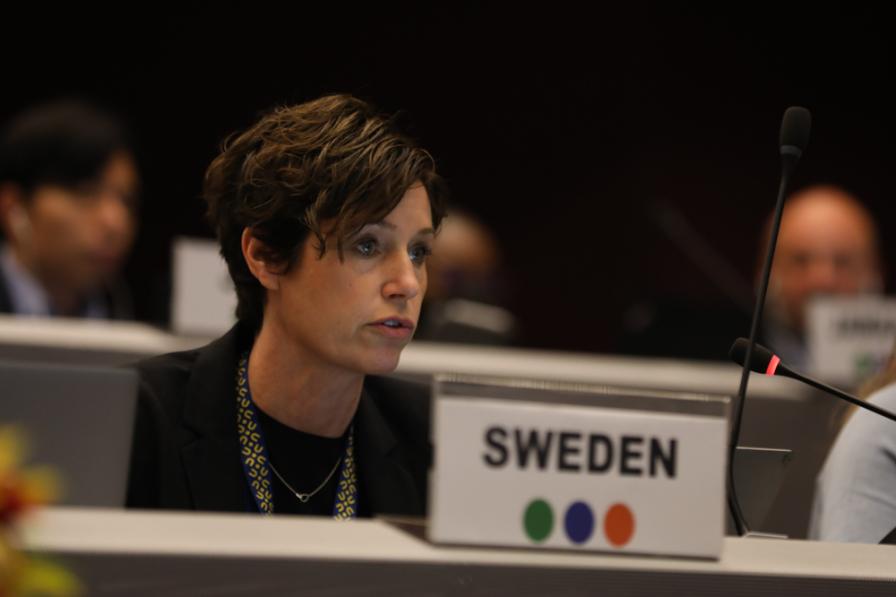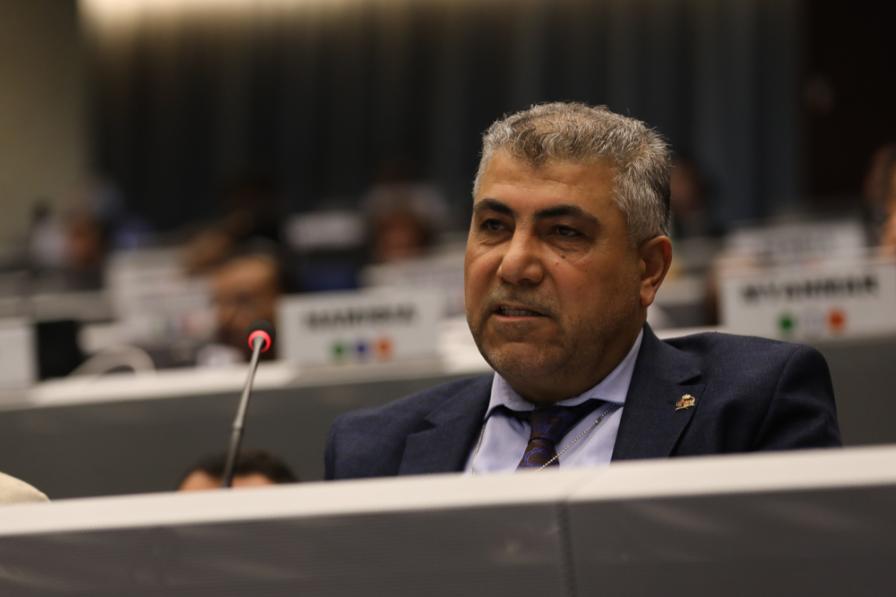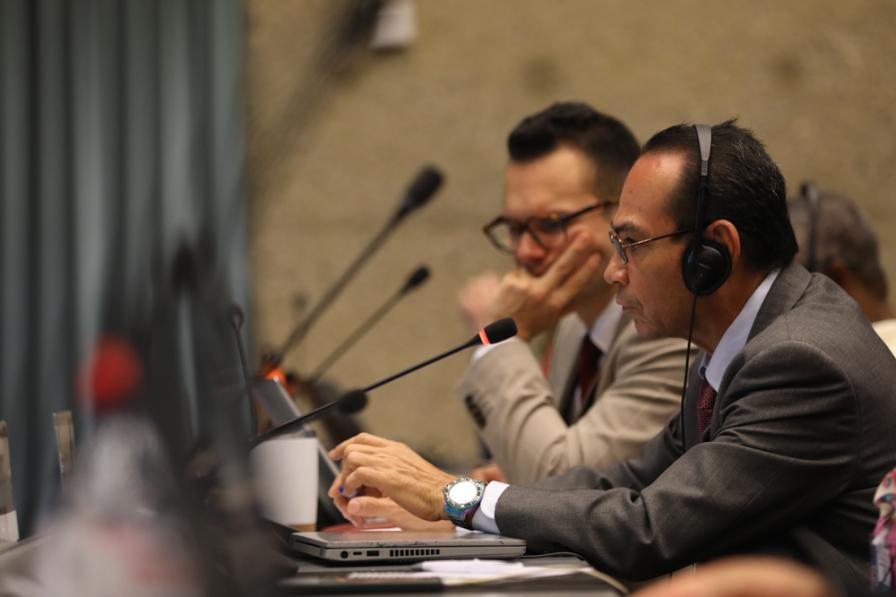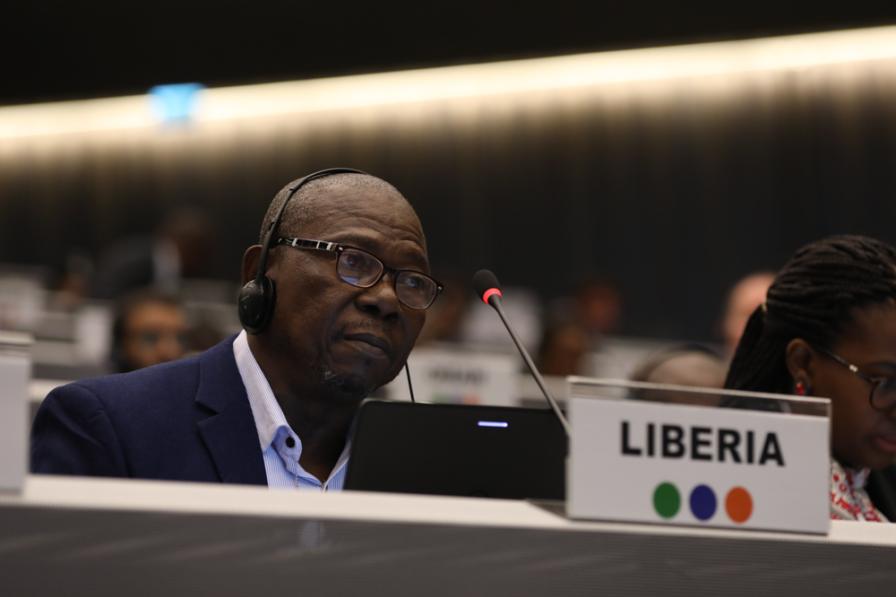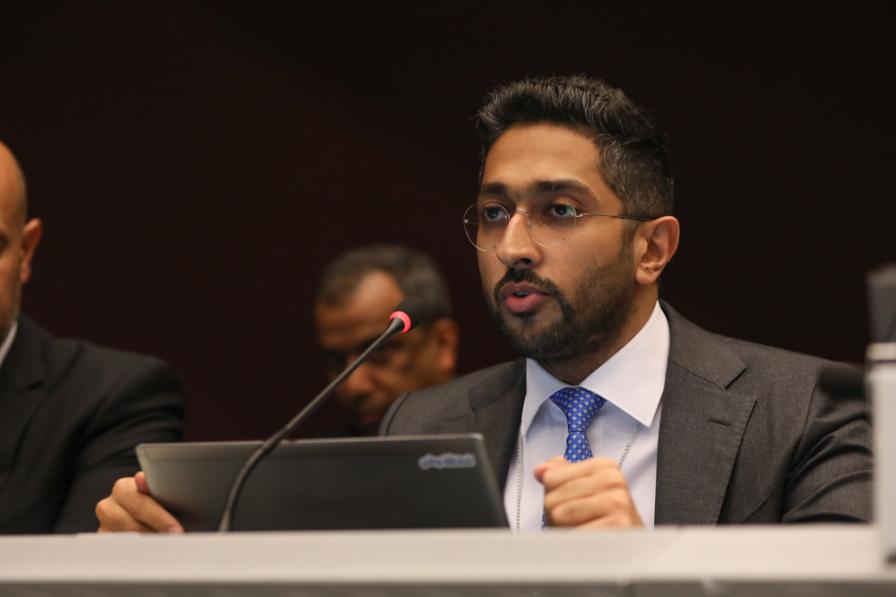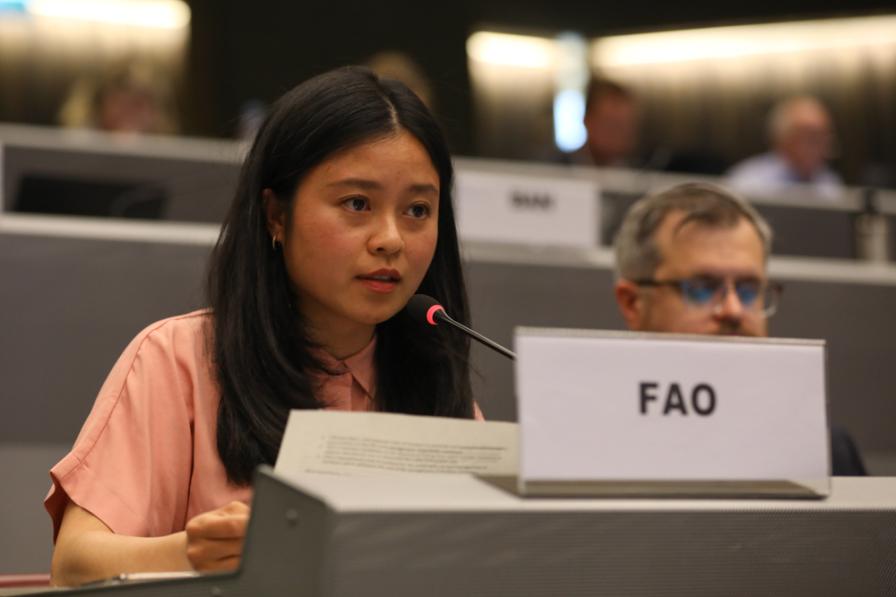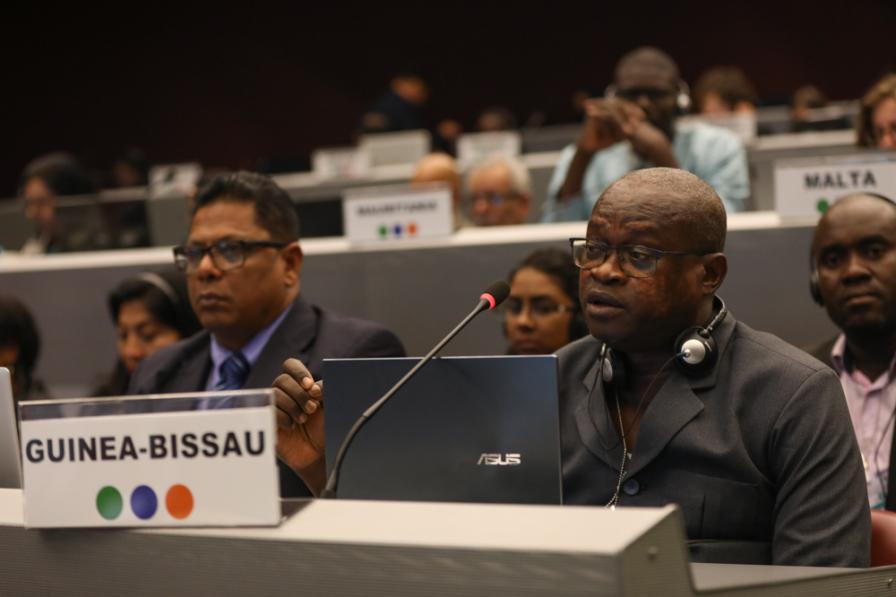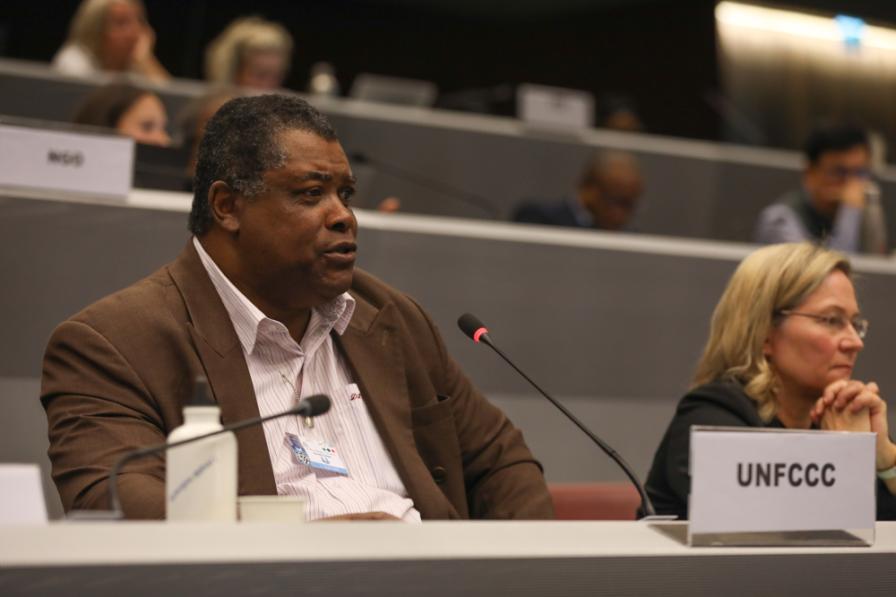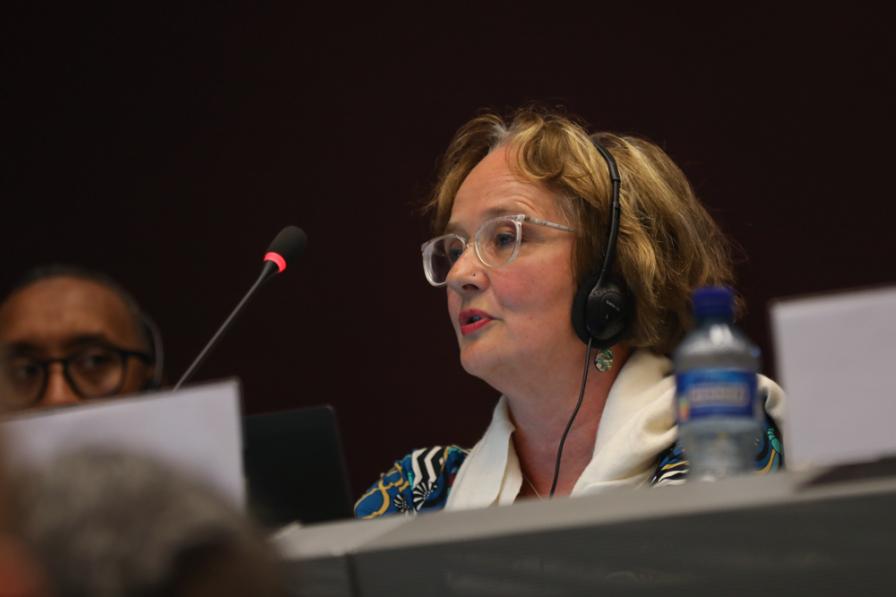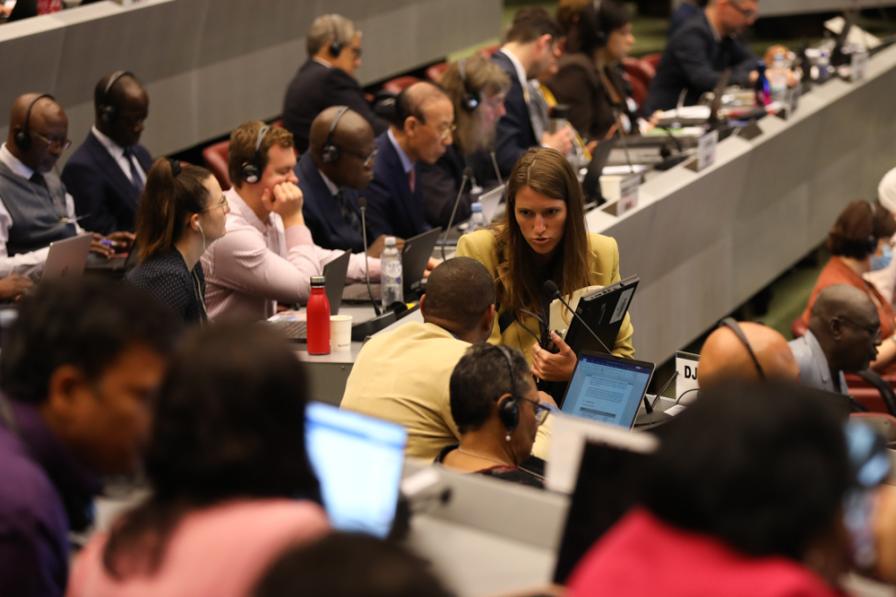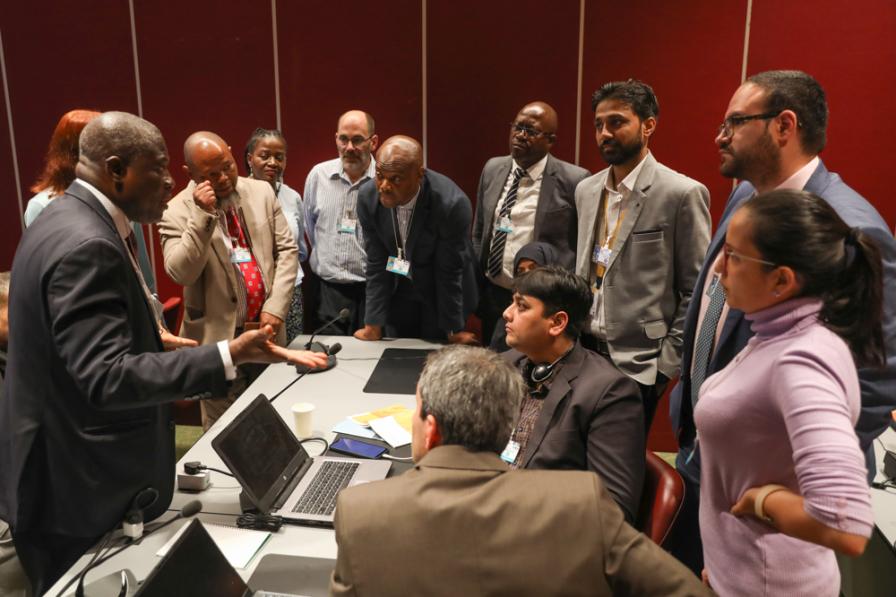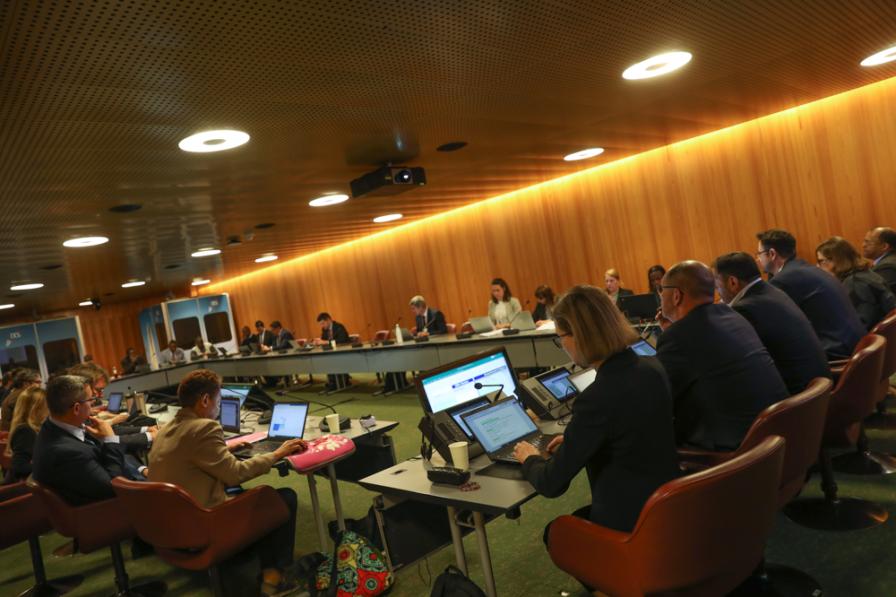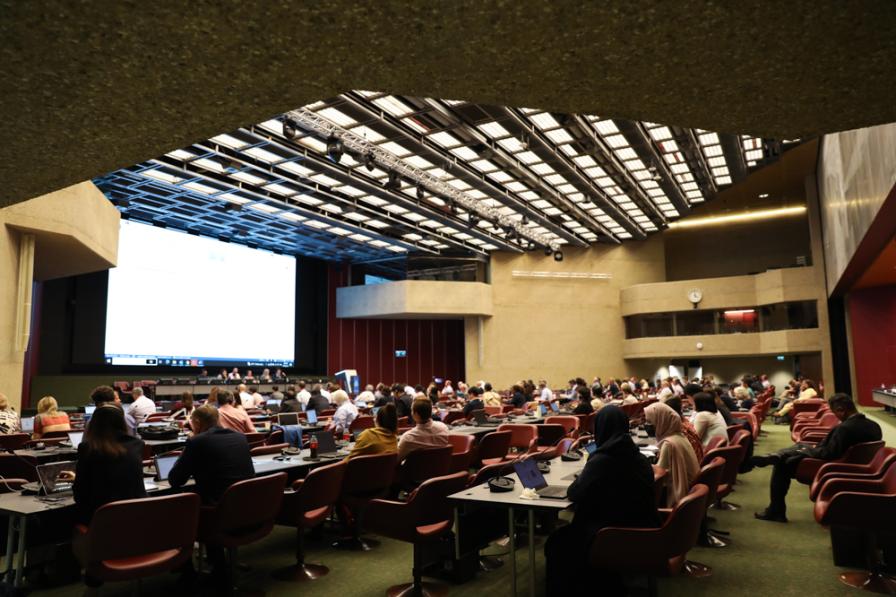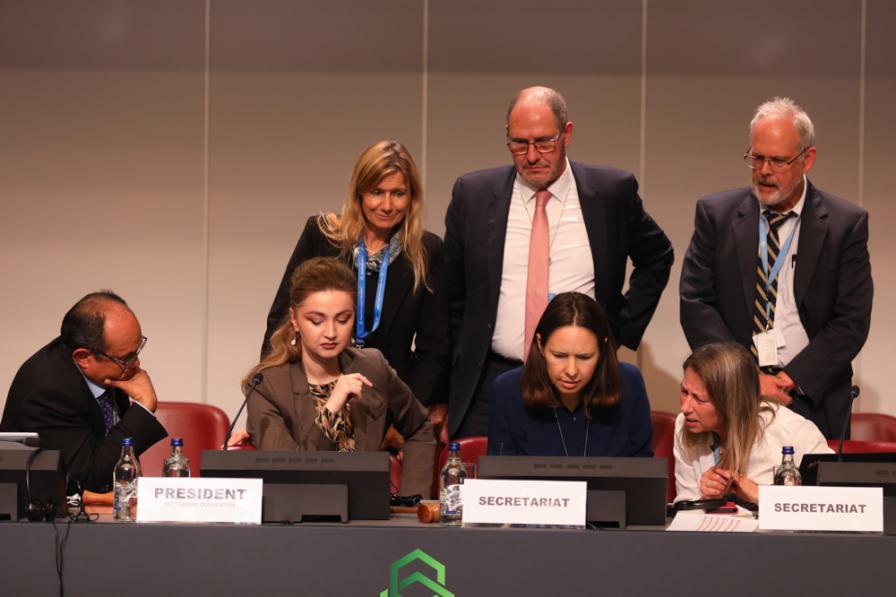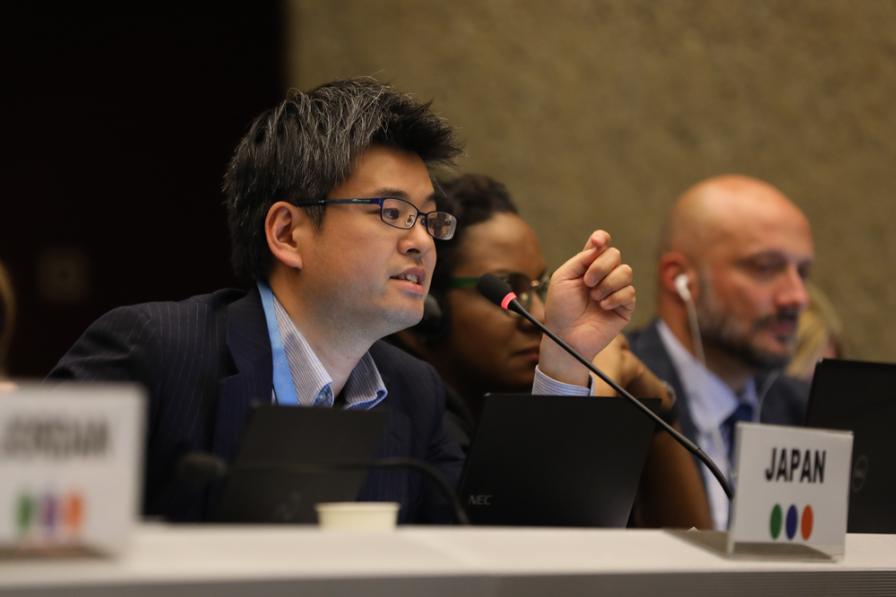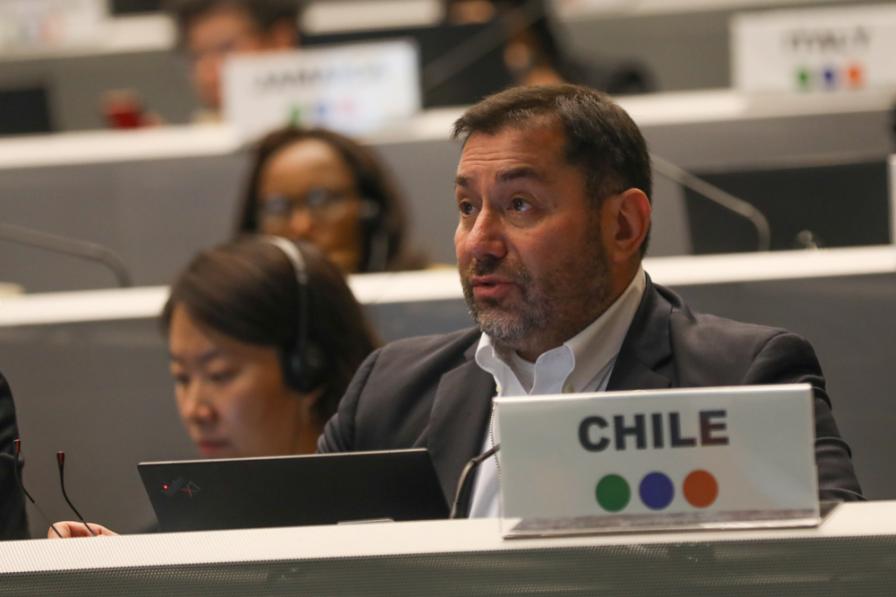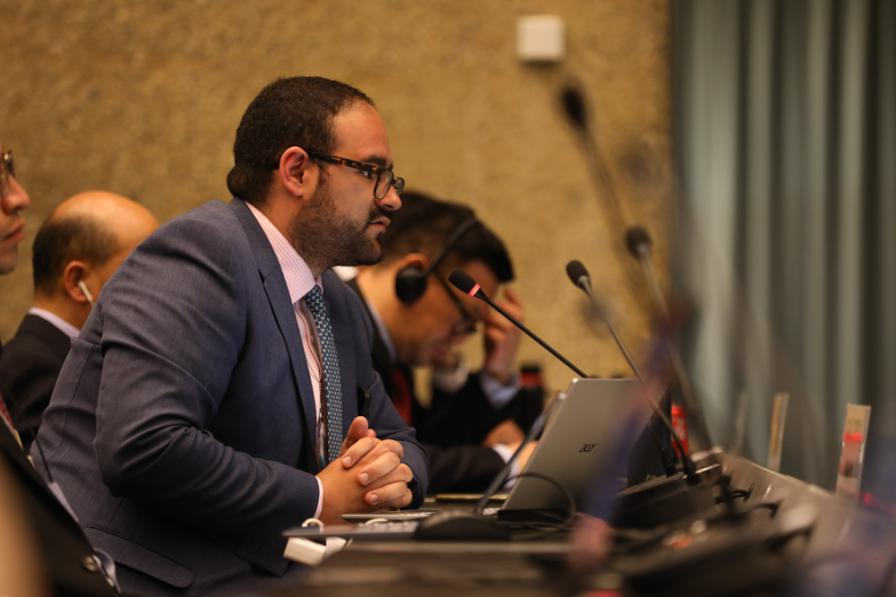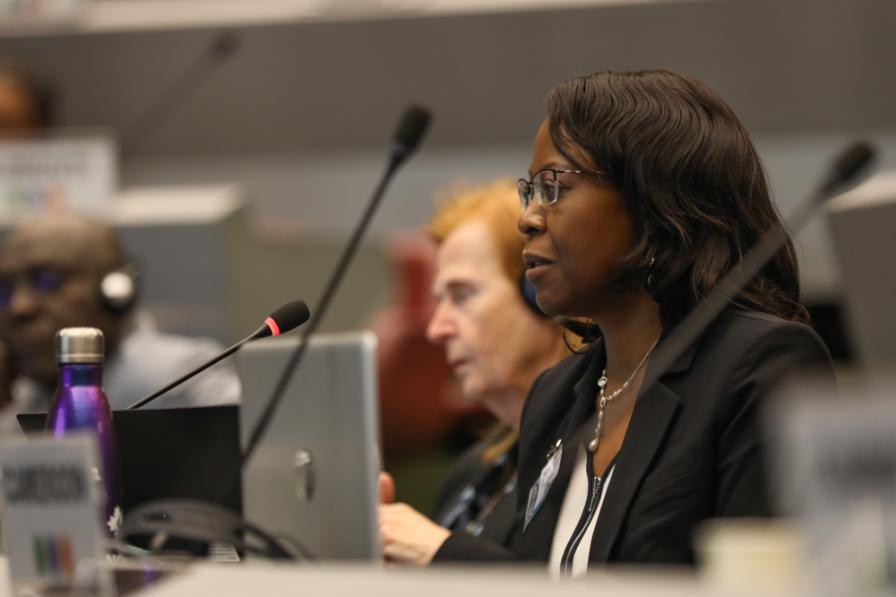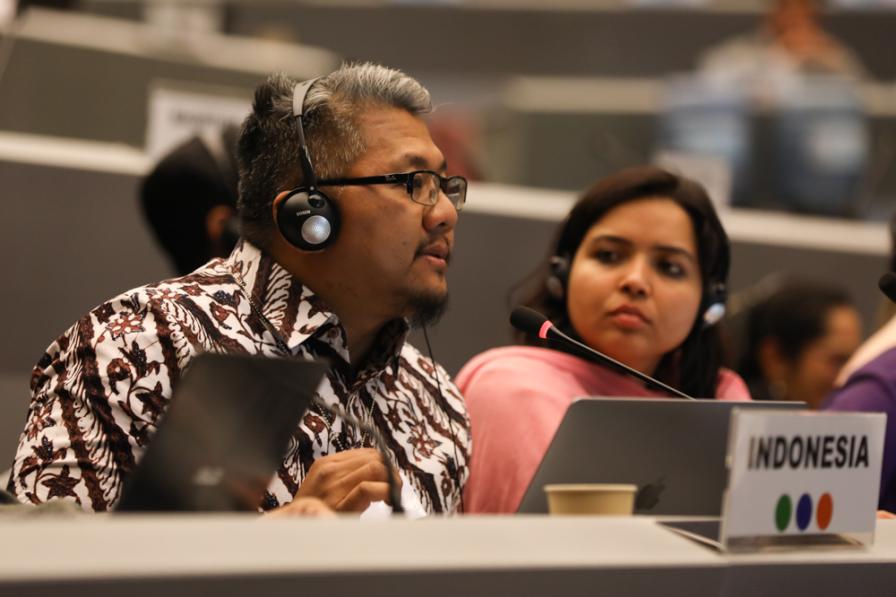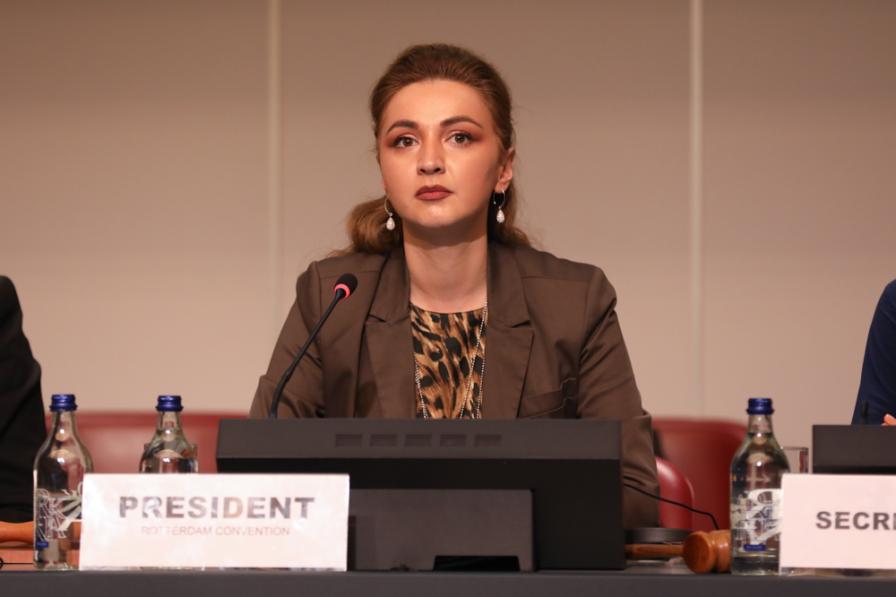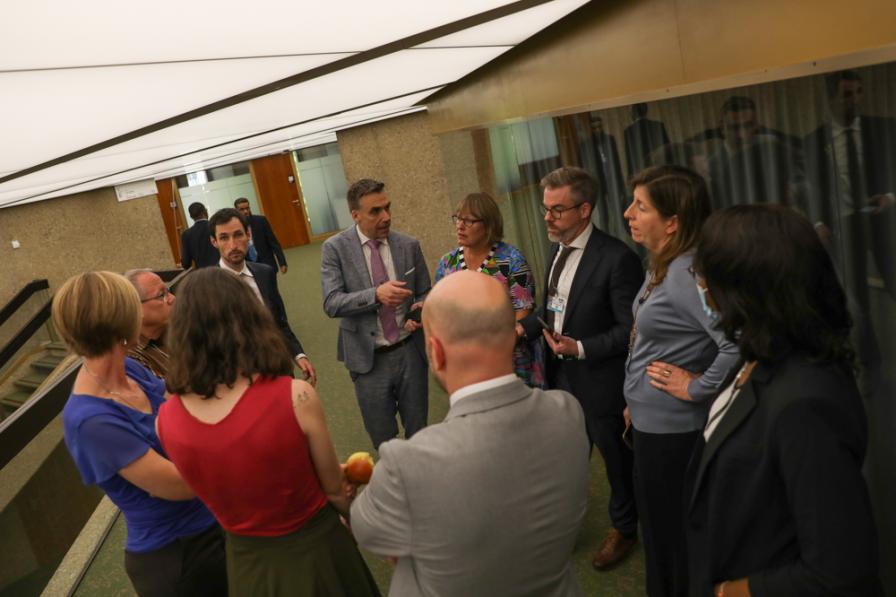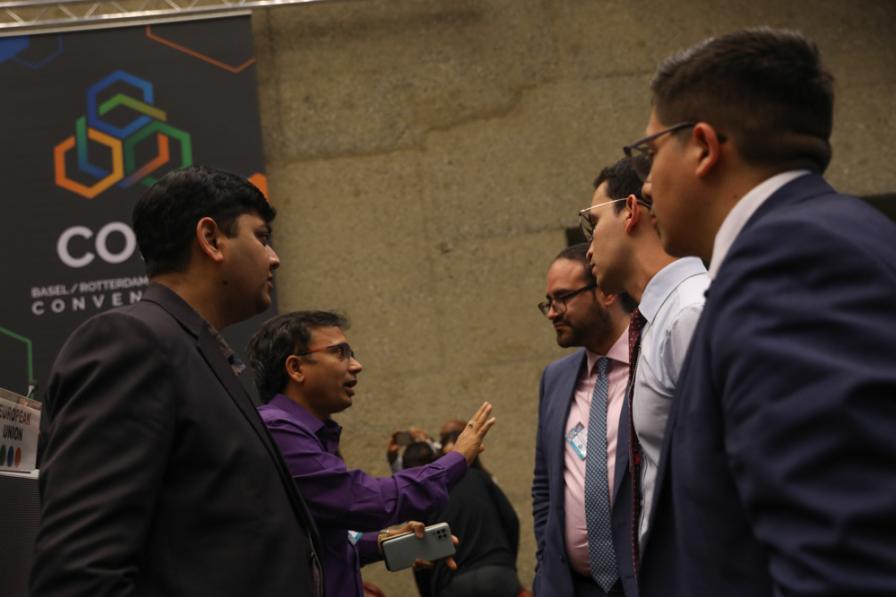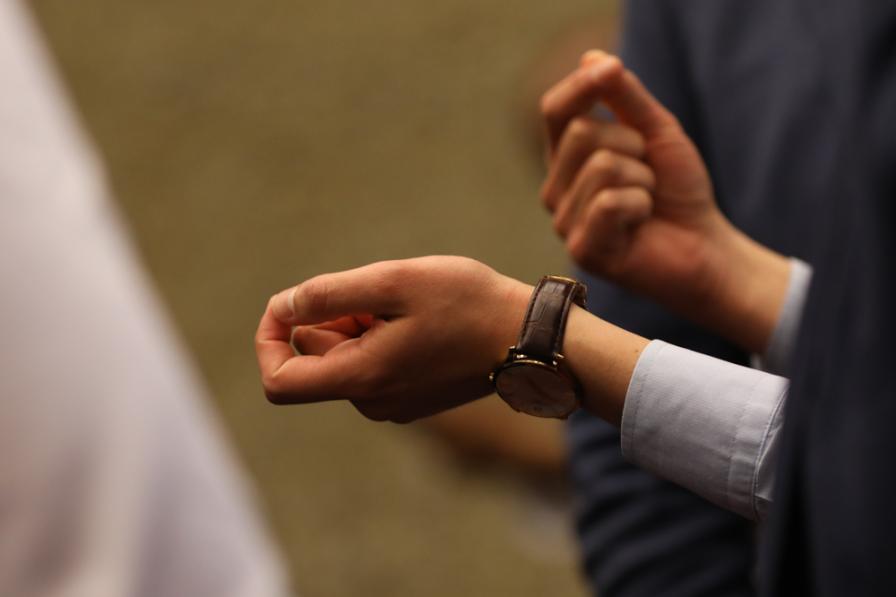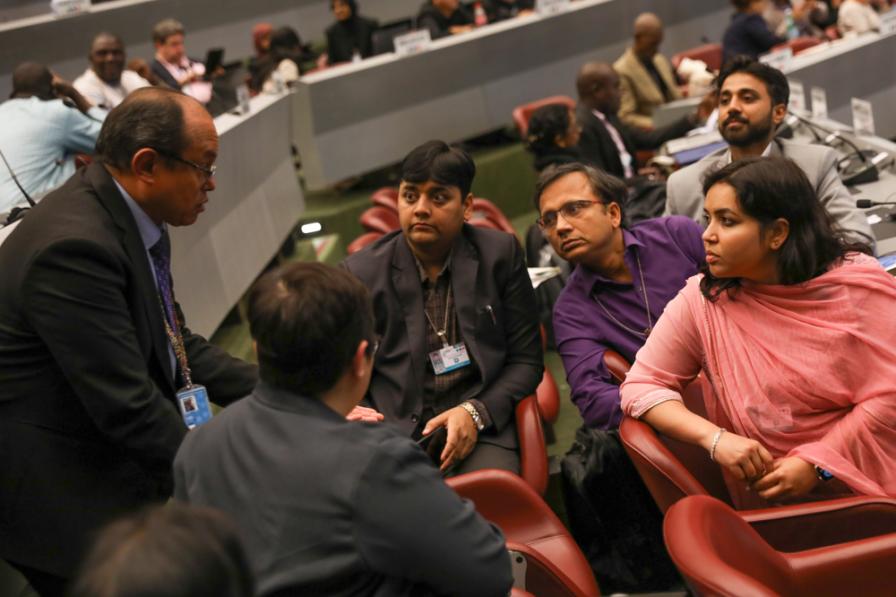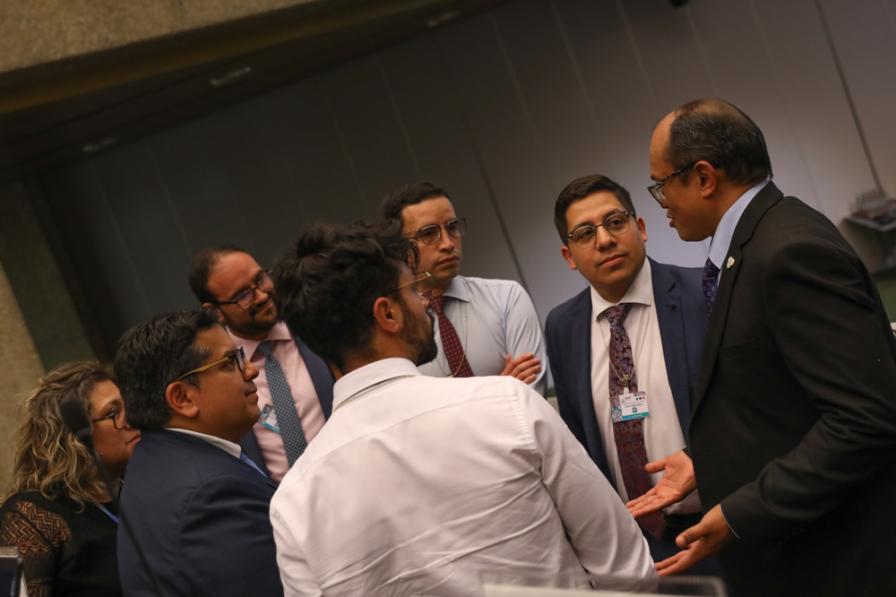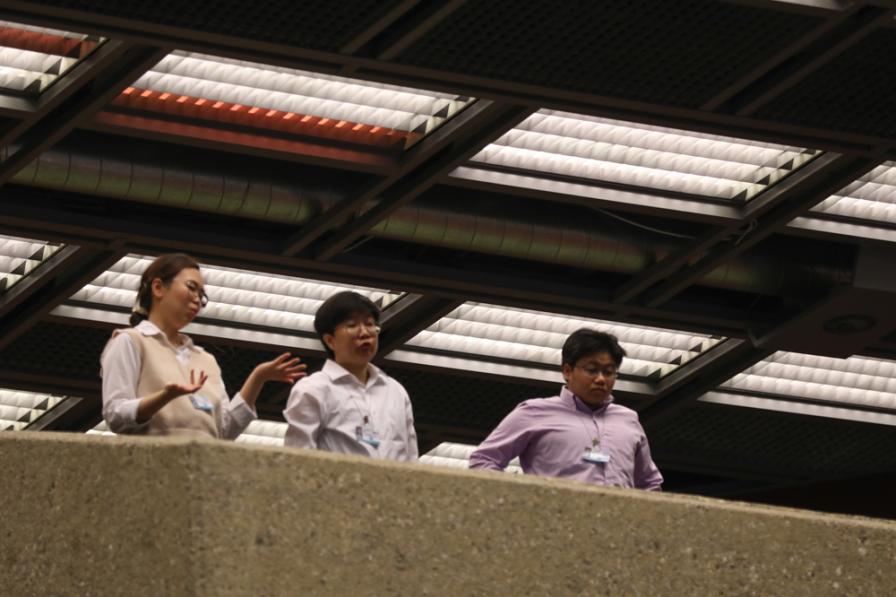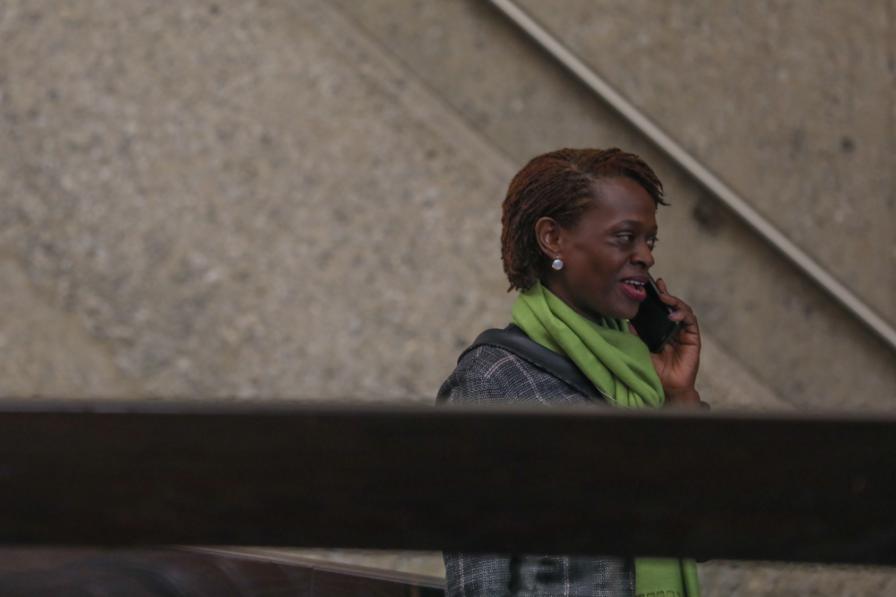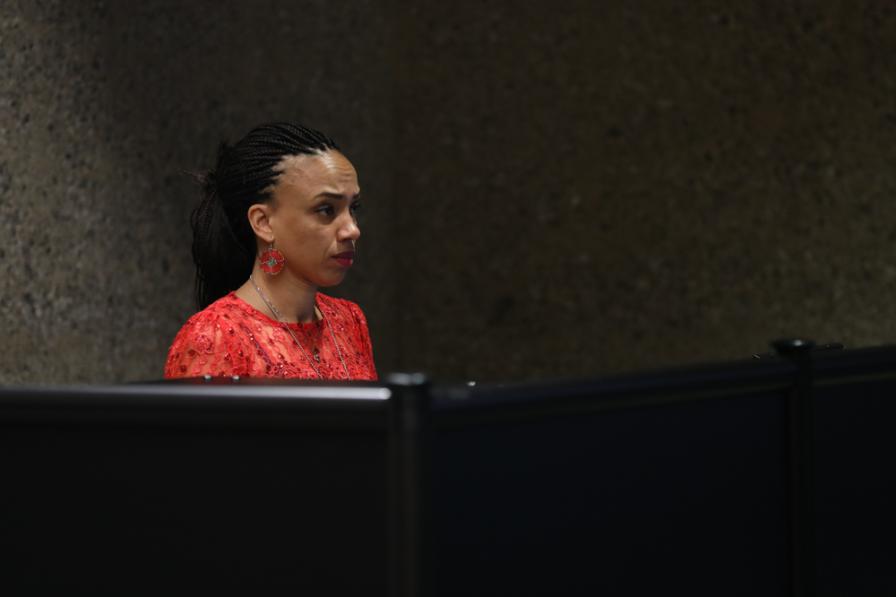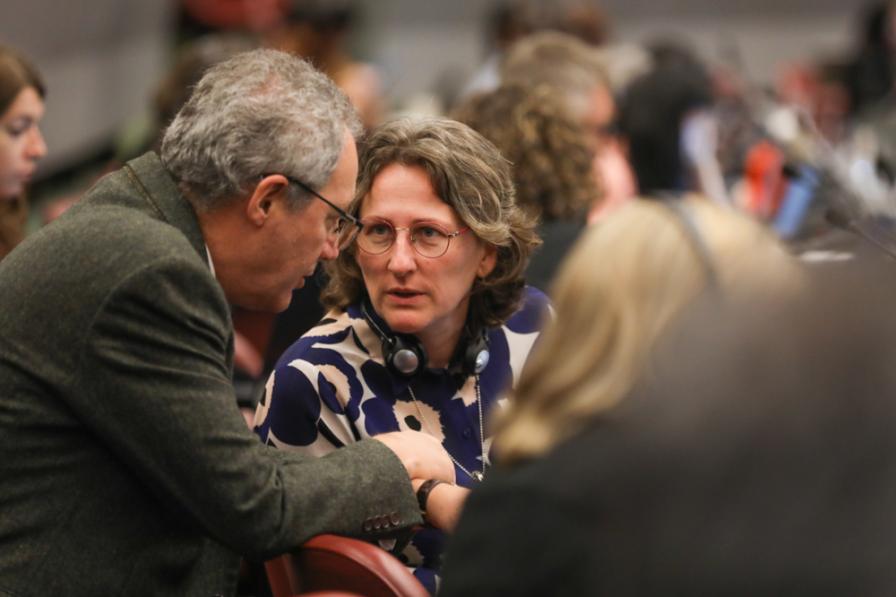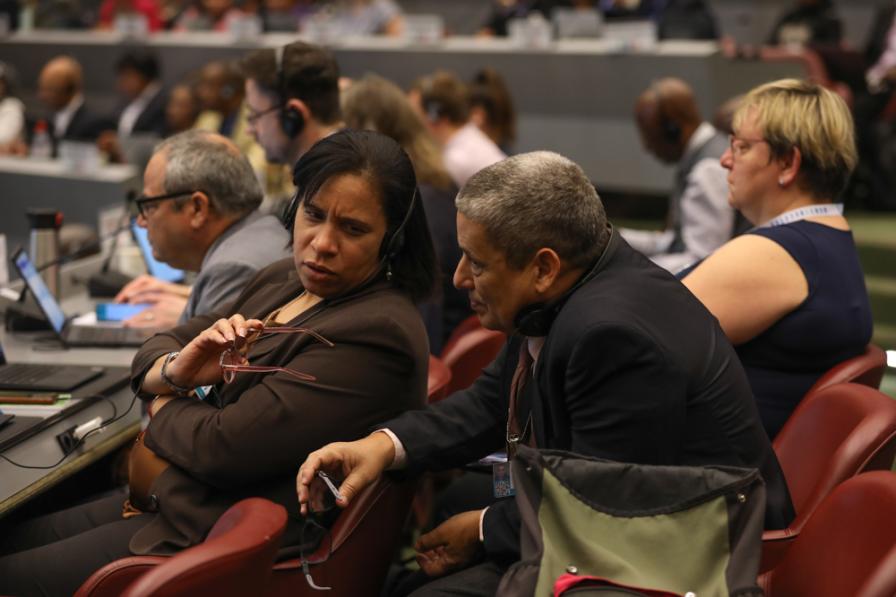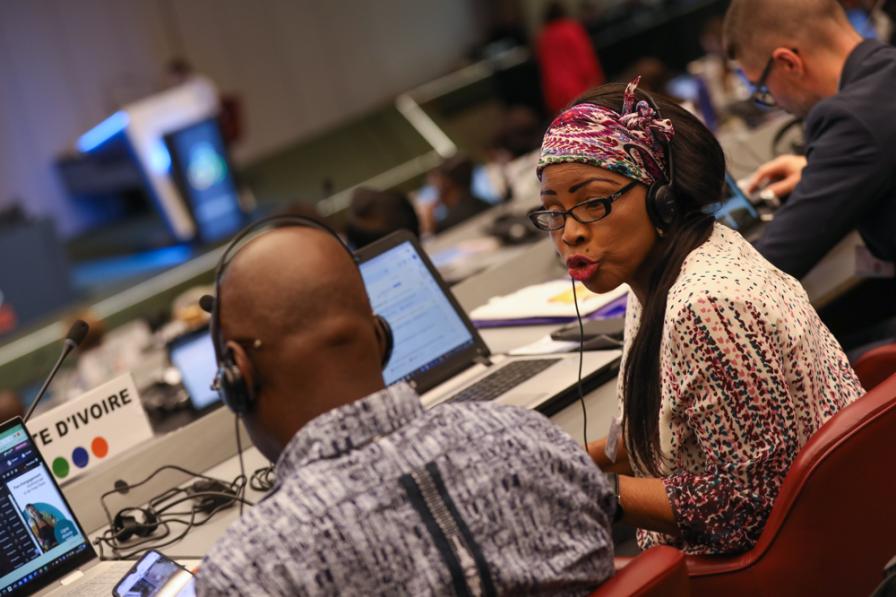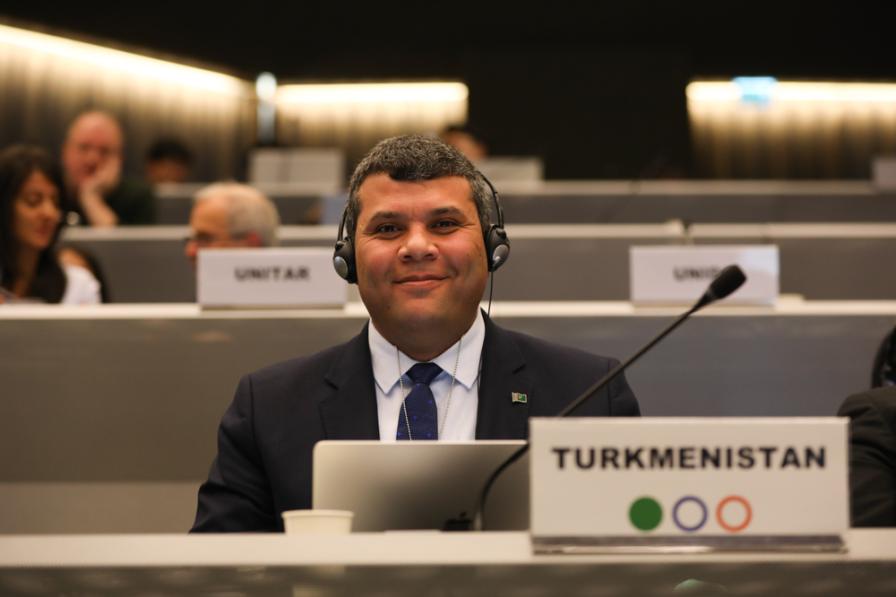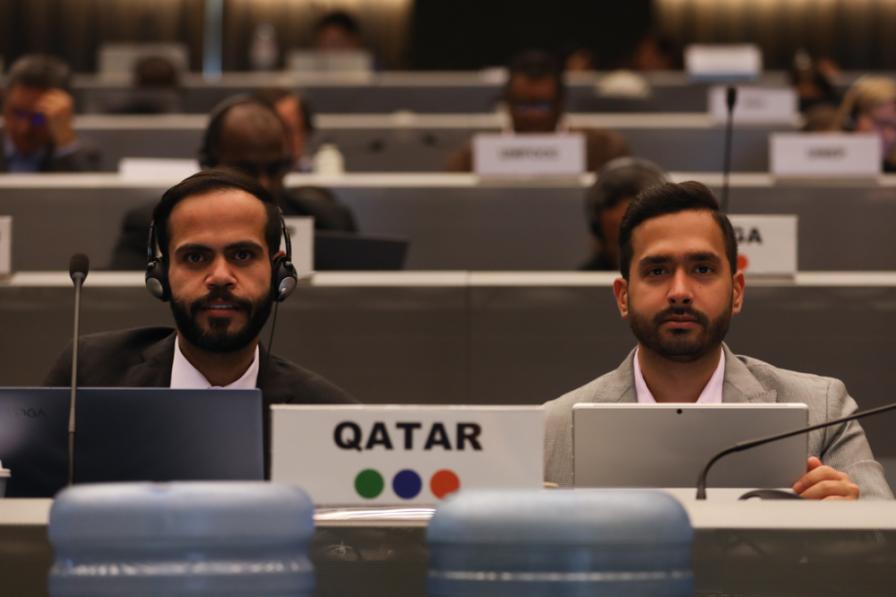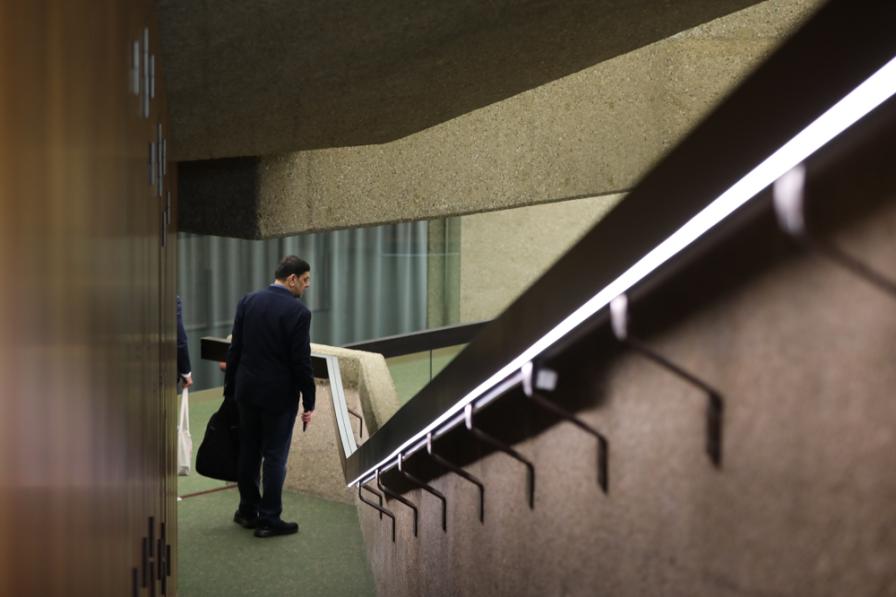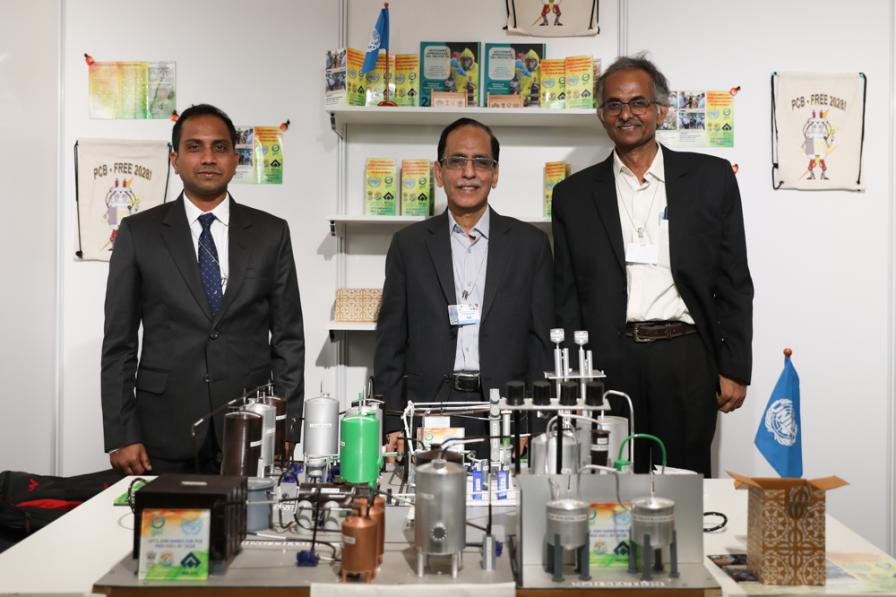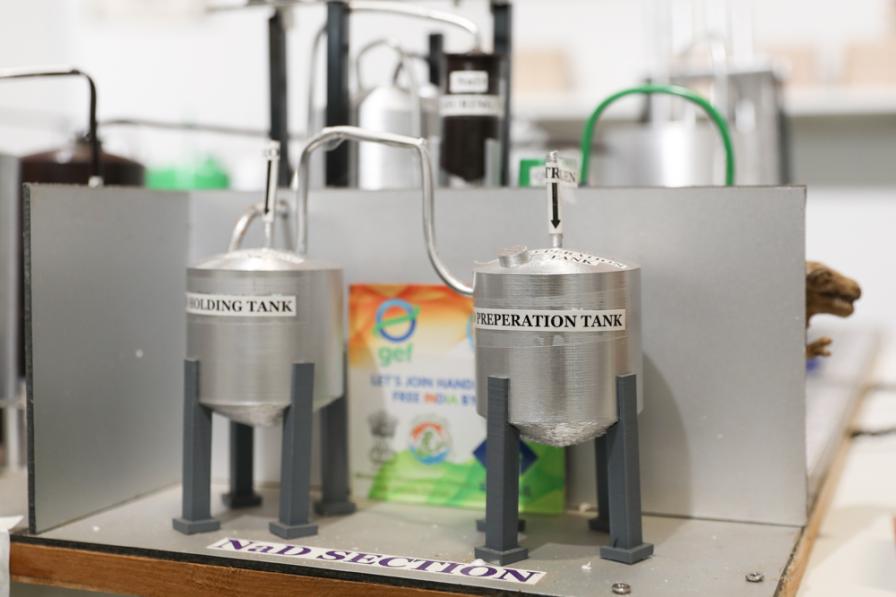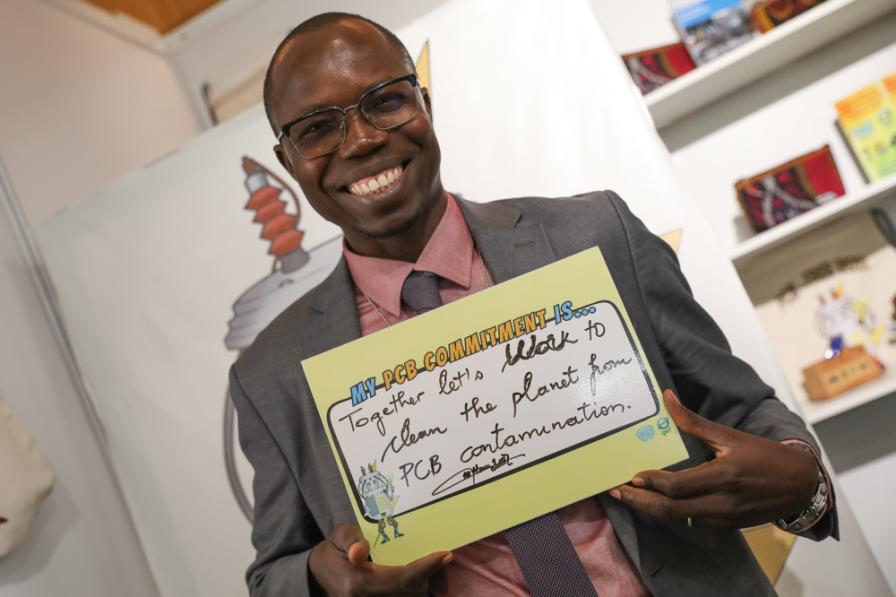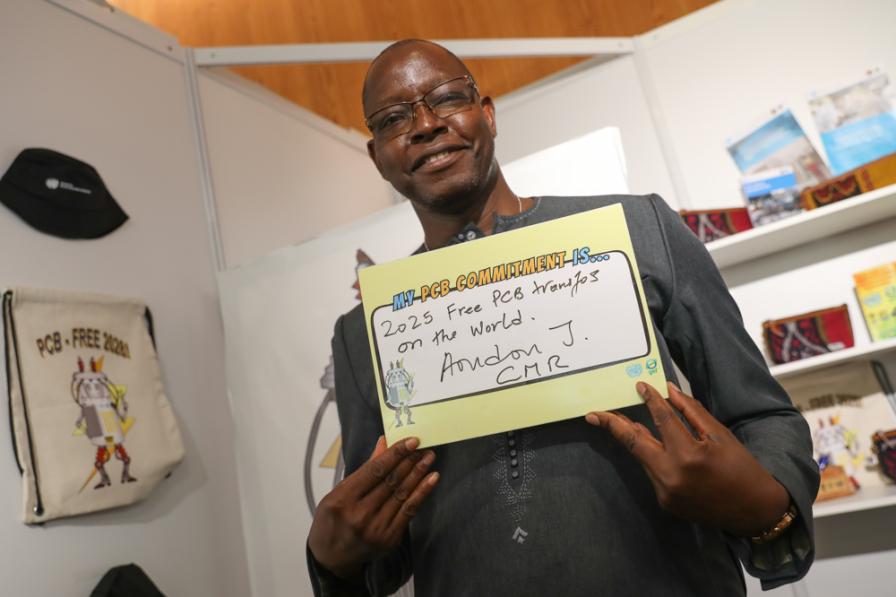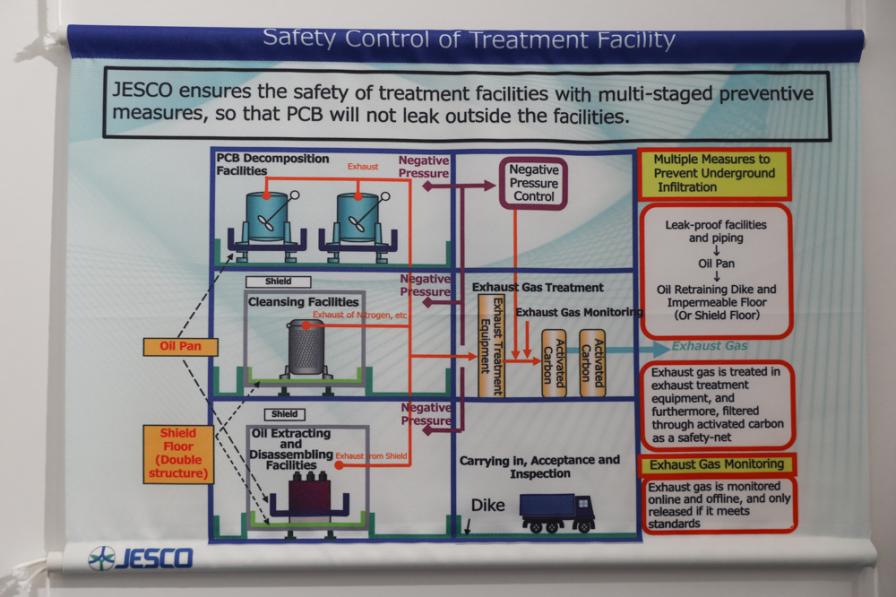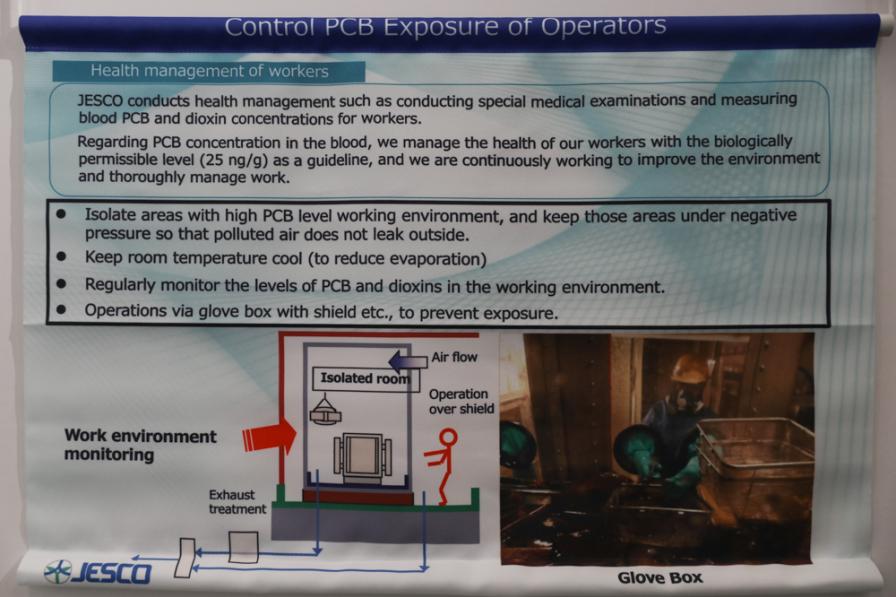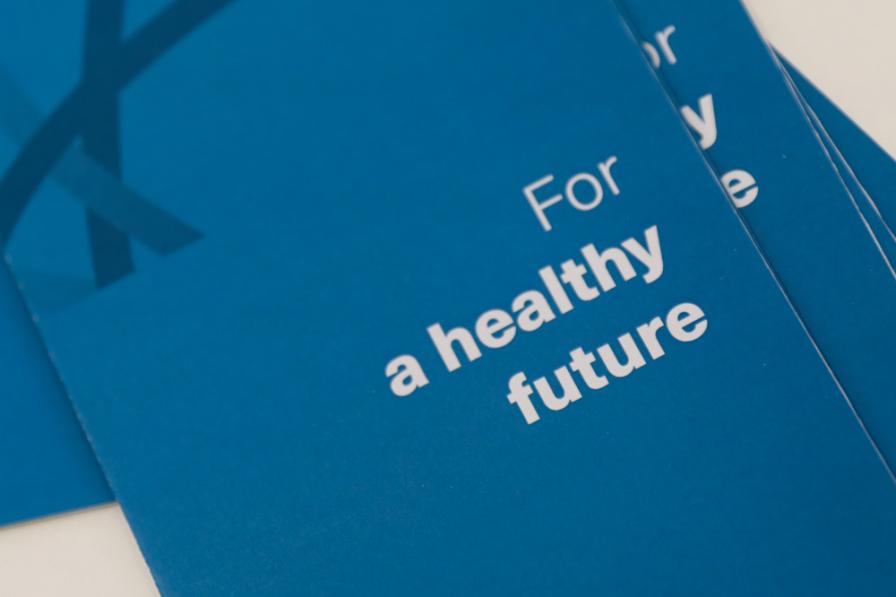There were three paces of work for the Basel, Rotterdam, and Stockholm (BRS) Conventions: hurrying, cruising, and stuck. There was a chance to consider how the BRS Conventions work with a growing array of organizations, from health to climate, to safeguard people and the planet from hazardous chemicals and wastes.
Want to dig deeper? Read the full Earth Negotiations Bulletin daily report.
The Stockholm Convention delegates were the ones in a hurry. Slated to finish tomorrow, delegates worked to finalize decisions on listing chemicals. In the compliance room, the words “spirit of compromise” were often heard to help make progress on establishing a compliance mechanism, now nearly 20 years in the making.
The Basel Convention continued on the plastic wastes technical guidelines. A long document, with much outstanding, unagreed text, it will help inform countries on how to manage various types of plastic wastes. Much of the discussion centered on Extended Producer Responsibility. It is follow up work to the decision taken in 2019 to make plastic wastes subject to the BC’s prior informed consent (PIC) procedure. This means that countries will be informed about plastics destined for their countries, and can take an informed decision whether to allow import.
The Rotterdam Convention again failed to launch its work on a proposal to add a new Annex to the Convention. The proposal would create a new list of substances on which a majority, but not all, parties to the Convention agree should be subject to the PIC procedure. Countries are at an impasse about who should facilitate the discussions. For some countries, there should be one Co-Chair from a country in support of the proposal and one in opposition.
The PCB Fair and Side Events
Polychlorinated biphenyl (PCB) is a pressing concern for the environment, health, and the Stockholm Convention, with targets looming to eliminate the use of PCB in equipment by 2025, and to ensure environmentally sound management of PCB in equipment and in liquids by 2028. Activities at the Fair included a PCB Clinic to discuss future interventions, and share challenges.
Side events also focused on PCB, with two panels sharing countries’ experiences and lessons learned on PCB elimination. Other events focused on plastics. One explored the potential and realized synergies between plastics and persistent organic pollutants (POPs). Another outlined the risks and opportunities of plastic credit financing mechanisms for the informal waste management sector. Given the rising flows of illicit waste, a side event on regional cooperation in South-East Asia to combat this issue was timely.
All ENB photos are free to use with attribution. For the 2023 BRS COPs, please use: Photo by IISD/ENB | Kiara Worth.
To receive free coverage of global environmental events delivered to your inbox, subscribe to the ENB Update newsletter.
